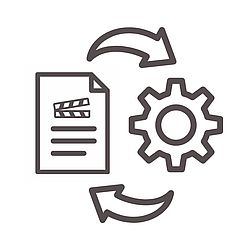
Resources for NBS Education
NBS EduDirectory - The resource landscape of NBS Education
This repository provides a comprehensive list of available resources, including guidance, reports, tools, and services developed around education about NBS. These NBS education resources and materials were discovered through EU-funded online repositories and through desk research. It is updated annually. You can also consult it as a database on PowerBI.
Have a look at further resources repositorites of the NBS and the education communities at the NBS EduHub.
Search results ( 1 - 5 of 40 )
“Stand up for nature-based solutions! There is no Planet B!” - Story of Implementation
The implementation of the NBS EduWORLD Learning Scenario “Stand up for nature-based solutions! There is no Planet B!” involved a three-month series of multidisciplinary workshops aimed at increasing students' awareness of nature-based solutions (NBS) and Sustainable Development Goals (SDGs). Through a collaborative approach across mathematics, geography, IT, and biology, students analysed environmental data, explored ecosystems, studied biodiversity, and used digital tools for research and visualization. Hands-on projects, such as investigating microplastic pollution, reinforced practical learning, while expert talks deepened their understanding of sustainability. The initiative successfully promoted critical thinking, digital literacy, and a sense of global responsibility, empowering students to advocate for NBS.
Topic: Understanding of NBS
Educational Level: Secondary Education
Language: Dutch English French German Greek Italian Lithuanian Portuguese Romanian Spanish
Organisation: European Schoolnet

A Collective Commitment to Sea Urchin Protection
Driven by a shared passion for environmental protection, a group of students embarked on a research project focused on the Paracentrotus lividus sea urchin, a key echinoderm in Mediterranean coastal areas. The project "Sea Urchin: Protection and Enhancement. An Environmental Education Experience", involved the collaboration of various entities and institutions, including the Parco di Porto Conte and the University of Sassari. The students collaborated to achieve a common goal: safeguarding this organism and its habitat. The activities of this Learning Scenario integrate research, communication, and critical thinking skills. Students leverage AI tools for evaluation and explore innovative data analysis techniques. Additionally, laboratory activities and opening debates enrich the learning experience of students.
Topic: Coastal Resilience
Educational Level: Secondary Education
Language: English
Organisation: European Schoolnet
A Green School is a Healthy School
In this Learning Scenario, students will measure air quality parameters in their school and discuss how to improve air quality, as well as how to make school spaces greener. This Learning Scenario was developed as part of the Integrating Nature-Based Solutions in Education project, funded by the European Commission Directorate-General for Research and Innovation and coordinated by PPMI, in collaboration with European Schoolnet (EUN).
Topic: Air Quality
Educational Level: Secondary Education
Language: Dutch English French German Greek Italian Lithuanian Polish Portuguese Romanian Slovak Spanish Swedish
Organisation: European Schoolnet
A Rain Garden at My Schoolyard
Nature-based solutions (NBS) are interventions that use or mimic natural processes to address societal challenges, such as climate change, biodiversity loss, and sustainable development. Learning Scenarios integrating NBS can help students understand the benefits and potential of these solutions and encourage them to develop and implement NBS projects in their own communities. In this Learning Scenario, students learn about the benefits of rain gardens for reducing stormwater runoff and improving water quality. They design and install a rain garden in a schoolyard or in another public space, considering factors such as soil type, plant selection, and maintenance requirements.
Topic: Water Management
Educational Level: Secondary Education
Language: English
Organisation: European Schoolnet
Are We Prepared for Natural Disasters?
This Learning Scenario (LS) involves students aged 12-15 in understanding the importance of constructing flood- and earthquake-resistant buildings and bridges using nature-based solutions. They will adopt an engineering and scientific approach, studying a centenary bridge's resilience and discussing the effects of climate change on natural events, with a focus on Disaster Risk Analytics.
Topic: Climate Resilience
Educational Level: Secondary Education
Language: Dutch English French German Greek Italian Lithuanian Portuguese Romanian Spanish
Organisation: European Schoolnet
![]()

Funded by the European Union. Views and opinions expressed are however those of the author(s) only and do not necessarily reflect those of the European Union or the European Commission. Neither the European Union nor the granting authority can be held responsible for them.